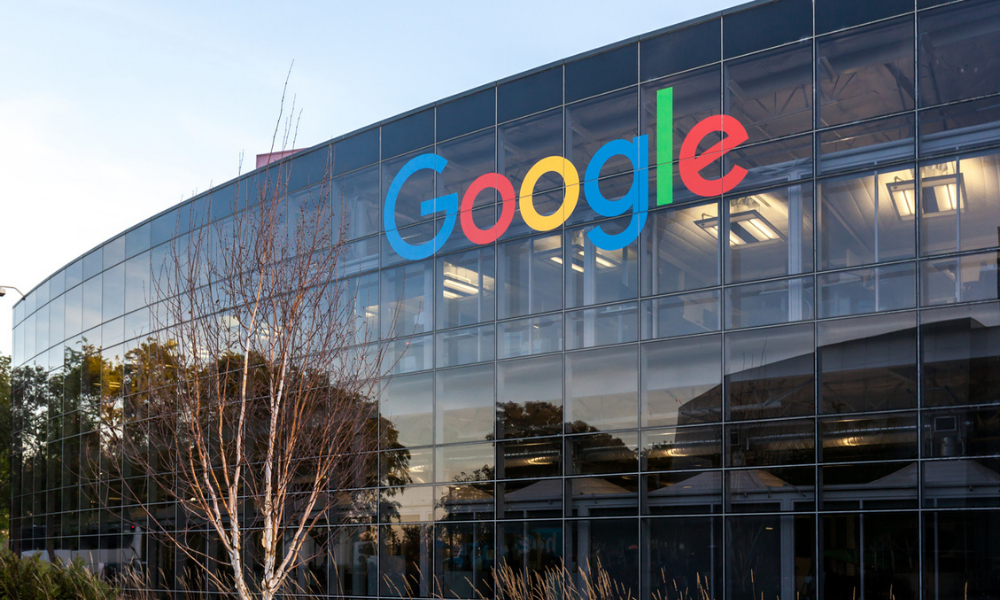Hounsell will appear at the 2024 Canadian Lawyer LegalTech Summit

The legal industry is on the cusp of a “massive change and disruption,” says Al Hounsell, director of strategic innovation and legal design at Norton Rose Fulbright. Hounsell will appear as a panellist in the upcoming Canadian Lawyer LegalTech Summit in the session “Preparing for the future of legaltech: Why integration is key.” The LegalTech Summit will take place on June 12 at Arcadian in Toronto.
He spoke with Canadian Lawyer about the legal profession’s adoption and integration of generative AI, and other subjects. *Answers have been edited for length and clarity.
What have been the big headlines for legal tech adoption in the legal profession this year? What tools or innovations are you most excited about?
If you go back four or five years and look at what was making the big headlines, you see things like the metaverse and blockchain.
Now, the big headline is generative AI (GenAI). To see that in context, I think it's important to draw the distinction. The things in the past that law firm innovation folks were really excited about are things that the practice either had no idea how it would affect the legal industry or had very little interest in doing something with it.
Now, with GenAI, the legal tech and legal innovation folks are excited about it. There is also considerable excitement in the practice, where people are excited about how it will change how they practice law.
The headline is GenAI, for sure, but when you look at that in the context of previous legal innovation, the story is very different. I think the level of excitement is much more pervasive among the legal tech folks and the practice itself.
How have you seen GenAI change the legal profession so far?
For most law firms, last year was a year of experimentation, where we got these tools in peoples’ hands on a pilot basis. There was some experimentation around determining the tools’ capabilities and limitations. It's very difficult to talk about the change we have seen so far in the legal profession because we are on the brink of a massive change and disruption in our industry.
What we've experienced so far is just a drop in the bucket.
How can lawyers and managers of legal teams prepare for the shift in the industry?
With the adoption of any new technology, there's always a productivity dip in the immediate term. Your productivity goes down as you begin using the new technology. Only after you get acquainted with it, figure out how it works, and understand its limitations and strengths will you rise to a new productivity plateau beyond where you previously were.
This is very important with GenAI because the tools differ from the decision-tree-based AI tools or simple predictive-based AI tools we've seen before. From lawyers and managers of legal teams, there needs to be a concerted push to help the practice get past this adoption curve to provide the necessary upskilling, to provide the training that's required, to help the practice understand what the technology is good at and not good at to get past this adoption curve because the movement in this industry is fast right now.
We understand that GenAI will significantly impact the legal profession. But sometimes, people make the mistake of conflating tasks with jobs.
The fact that AI is going to eat up specific legal tasks does not necessarily mean that it's going to eat up any legal jobs if people are adequately upskilled, and we begin to reimagine how to move the legal industry up the value chain. We must disaggregate these legal tasks to let AI do what it's good at and let people do what they're good at.
How can organizations build infrastructure to allow tech systems to interact efficiently?
One of the big changes we are already starting to see is a massive increase in the volume of legal work based on these tools' capabilities.
It will allow self-represented litigants and small law firms to handle a much higher volume of legal work. This is going to flood our court system and legal systems.
The second thing we will see is that regulatory bodies will be able to handle a lot more volume. They will be able to use tools that allow them to spot potential enforcement actions quickly. That's going to increase clients’ risk profile and increase the demand for legal services.
We're also going to see a big increase in market activity in the broader macroeconomic environment, which will significantly increase the output of knowledge workers. With every rise in market productivity, we have seen an increase in the volume of legal work.
That's the context of this question of building infrastructure to handle what will happen in our industry.
The big question is how to accurately and efficiently feed high volumes of relevant data into GenAI systems. From a technical infrastructure perspective, this is all about organization-wide retrieval-augmented generation (RAG). For specific legal questions, you point to a localized universe of content, which helps ground the output of the GenAI tools.
The infrastructure needed to handle the volume of legal work in the world we're very quickly moving into is organization-wide RAG. This means allowing very sophisticated search tools to sit on top of every data source throughout the firm, whether it is the document management system, business operations data, or marketing data. Highly sophisticated search algorithms need to sit on top of that to feed the relevant content into the context window of GenAI tools to do advanced things and help firms deal with the volume of legal work that is fast approaching.
What common tools are going to be improved by AI augmentation?
The number one is search. One of the most significant pain points for an innovation or knowledge management practitioner in any Canadian law firm is that finding what people are looking for is very difficult. Search will be massively improved as we move into a world where GenAI helps you comb through massive amounts of data through these organization-wide RAG systems.
We'll be able to interact naturally with our document management system to quickly get up to speed—helicoptering into ongoing matters to get the context that you need for what's happening in a particular transaction. It will allow us to find necessary content when needed to speed up drafting, process management, and every other legal workflow contingent upon having strategically relevant, high-quality data.
Is there anything else that you'll be discussing in the panel that would be of interest to our readers?
For this panel, the big thing that caught my attention was the word integration.
This idea of integration must be seen in the broader context of disruptive innovation throughout history in other industries.
When a genuinely disruptive technology is brought into the marketplace, that technology usually doesn't disrupt entire industries until one important step has taken place. That step is integration.
The new disruptive technology needs to integrate into existing business processes, data sources, fulfillment services, and payment processing before it can cause a big, disruptive shift in an industry.
I'll give you two examples. One is the internet. When the internet came on the scene, it was a novelty to be able to send an instant email to someone. But it wasn't until the internet started integrating with existing business systems, like fulfillment systems, cataloging systems, payment processing, and other business processes, that we saw a significant disruption to brick-and-mortar businesses throughout the various industries.
Another example is a smartphone. When Apple introduced the iPhone, it was pretty exciting for everyone, and people thought about how to use it in their personal lives. However, we didn't see a massive industry disruption until the integration process started. The app stores fueled this. When they began to allow developers to integrate this new disruptive technology—having a computer in your pocket—into different industry processes, we saw massive disruption begin.
When the iPhone was introduced, nobody was thinking, ‘Oh, wow! We've just massively disrupted the taxi industry.’ That didn't happen until integration began to take place, and we realized that having an internet-connected, GPS-enabled computer in your pocket enables some new business propositions for the gig economy across several different industries.
Integration is always the accelerator of innovation's diffusion. Innovation diffuses throughout the marketplace as it becomes strategically integrated into different market areas.
This is very important to the legal industry. The large language models (LLMs) came on the scene, and, in many ways, it was a novelty that I could get it to draft a legal memorandum in the style of a particular poet.
Vendors and law firms are beginning to see this slow, low-tech integration process. This will accelerate the diffusion of the LLMs throughout the industry, but it will also fuel disruption in our industry as the breakthrough technology slowly becomes integrated into legal processes.










